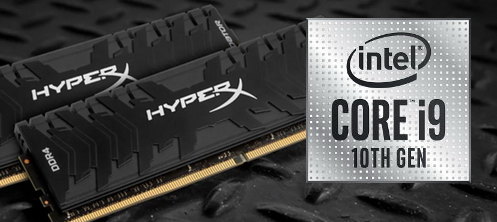- Jan 8, 2011
- 10,734
- 3,454
- 136
I bought it for better VR performance (which is gave) and most of those games are all janky and seem to run on a single core. The 10700K already boosts to 5-5.1Ghz for lightly threaded stuff anyway, so why the heck am I going to pump 1.4v into this thing trying to get all cores at 5-5.1? It looks like Intel already maxed these things out and only left 300Mhz on the table max for an all core OC. Sandy Bridge this is not. At least it's still fast though.
Another thing, I am doubting most of the posts I see about people bragging about their all core 5.1 OC with something ridiculous like 1.25v. They all talk like that and I think they're all full of crap.
Another thing, I am doubting most of the posts I see about people bragging about their all core 5.1 OC with something ridiculous like 1.25v. They all talk like that and I think they're all full of crap.



